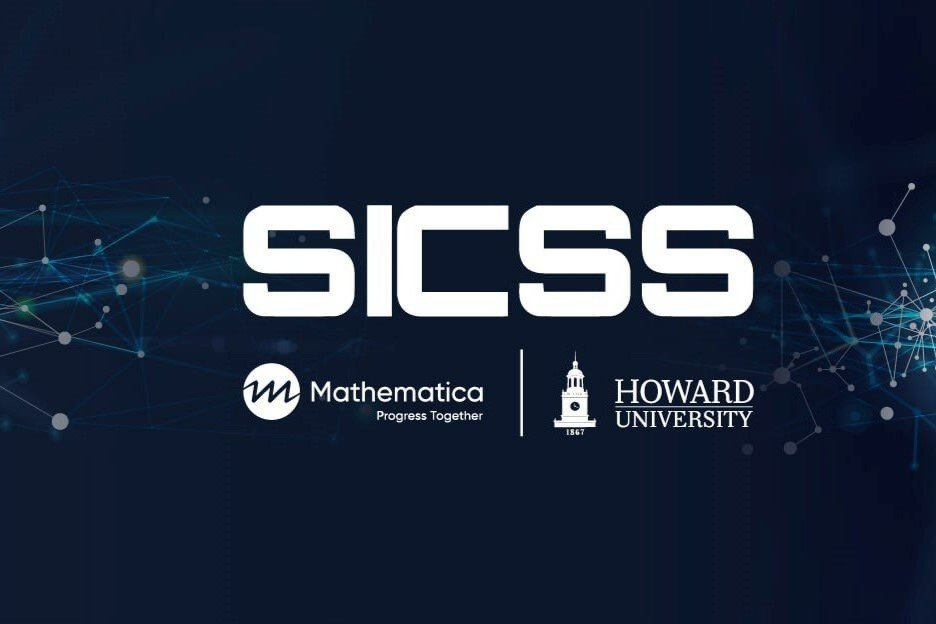SICSS-Howard/Mathematica Alumni Receive 2023 Excellence in Computational Social Science Research Awards
This blog post is the eighth, and final, post in a follow-on to our 2021 “The future of computational social science is Black” series, about a Summer Institute in Computational Social Science organized by Howard University and Mathematica. It continues to bring the power of computational social science to the issues of systemic racism and inequality in America. This marks the third iteration of the successful SICSS model being hosted by a Historically Black College or University.
SICSS-Howard/Mathematica’s 2023 Annual New Frontiers in Research and Technology Panel focuses on “AI + Automation + Work”
This blog is the seventh, and penultimate post, in a follow-on to our 2021 “The future of computational social science is Black” series, about a Summer Institute in Computational Social Science organized by Howard University and Mathematica. It continues to bring the power of computational social science to the issues of systemic racism and inequality in America. This marks the third iteration of the successful SICSS model being hosted by a Historically Black College or University.
Latanya Sweeney, Harvard Professor and Founder of the Public Interest Technology Lab, Delivers Keynote Address at SICSS-Howard/Mathematica 2023
This blog post is the sixth of eight in a follow-on to our 2021 “The future of computational social science is Black” series, about a Summer Institute in Computational Social Science organized by Howard University and Mathematica. It continues to bring the power of computational social science to the issues of systemic racism and inequality in America. This marks the third iteration of the successful SICSS model being hosted by a Historically Black College or University.
Latanya Sweeney, scholar of technology science, Daniel Paul Professor of the Practice of Government and Technology at the Harvard Kennedy School and in the Harvard Faculty of Arts and Sciences, and director and founder of the Public Interest Tech Lab, delivered the keynote address for SICSS-Howard/Mathematica 2023.
Exploring Innovations in Computational Social Science: Highlights from SICSS-H/M's Bite-Sized Lunchtime Talks 2023
This blog post is the fifth of eight in a follow-on to our 2021 “The future of computational social science is Black” series, about a Summer Institute in Computational Social Science organized by Howard University and Mathematica. It continues to bring the power of computational social science to the issues of systemic racism and inequality in America. This marks the third iteration of the successful SICSS model being hosted by a Historically Black College or University.
Insights and Inspirations from Leading Scholars for Future Computational Social Scientists
This blog post is the fourth of eight in a follow-on to our 2021 “The future of computational social science is Black” series, about a Summer Institute in Computational Social Science organized by Howard University and Mathematica. It continues to bring the power of computational social science to the issues of systemic racism and inequality in America. This marks the third iteration of the successful SICSS model being hosted by a Historically Black College or University.
The Beauty in Nurturing Communal and Liberating Forms of Computational Social Science
This blog post is the third of eight in a follow-on to our 2021 “The future of computational social science is Black” series, about a Summer Institute in Computational Social Science organized by Howard University and Mathematica. It continues to bring the power of computational social science to the issues of systemic racism and inequality in America. This marks the third iteration of the successful SICSS model being hosted by a Historically Black College or University.
Rethinking Inclusivity in Computational Social Science
This blog post is the second of eight in a follow-on to our 2021 “The future of computational social science is Black” series, about a Summer Institute in Computational Social Science organized by Howard University and Mathematica. It continues to bring the power of computational social science to the issues of systemic racism and inequality in America. This marks the third iteration of the successful SICSS model being hosted by a Historically Black College or University.
Leveraging Data Science to Address Important Questions
This blog post is the first of eight in a follow-on to our “The future of computational social science is Black” series, about a Summer Institute in Computational Social Science organized by Howard University and Mathematica. It continues to bring the power of computational social science to the issues of systemic racism and inequality in America. This marks the third iteration of the successful SICSS model being hosted by a Historically Black College or University.
From Social Science to Data Science
How can you use data science in social science research? Find an interview with the Oxford Internet Institute’s Dr. Bernie Hogan and lots of useful resources in this post.
Five principles to get undergraduates involved in real-world data science projects
As a D-Lab and Data Science Education Program Fellow at the University of California, Berkeley in Spring 2020, I helped to ensure and enhance the quality of more than 40 Data Science Discovery Projects, working with community partners and undergraduate research assistants. The goal of these projects was to connect undergraduates with community impact groups, entrepreneurship ventures, and educational initiatives across UC Berkeley and provide them with hands-on and team-based research opportunities outside the classroom.


